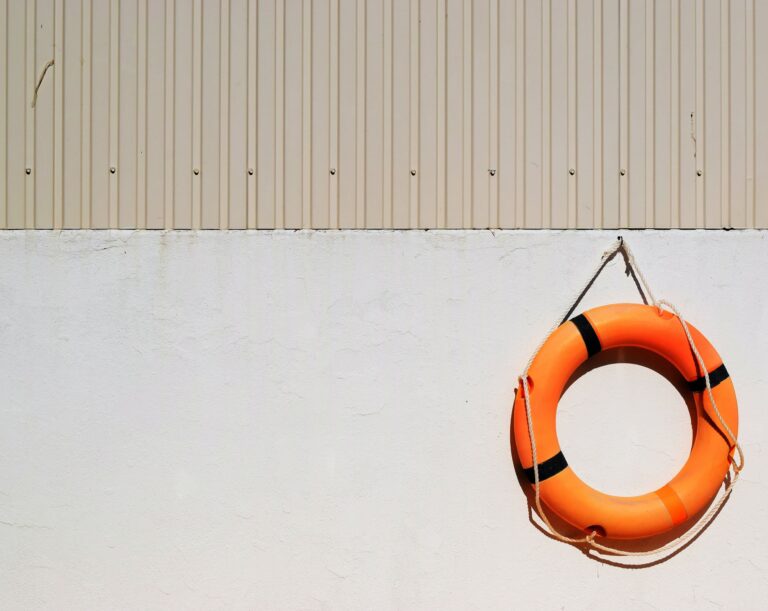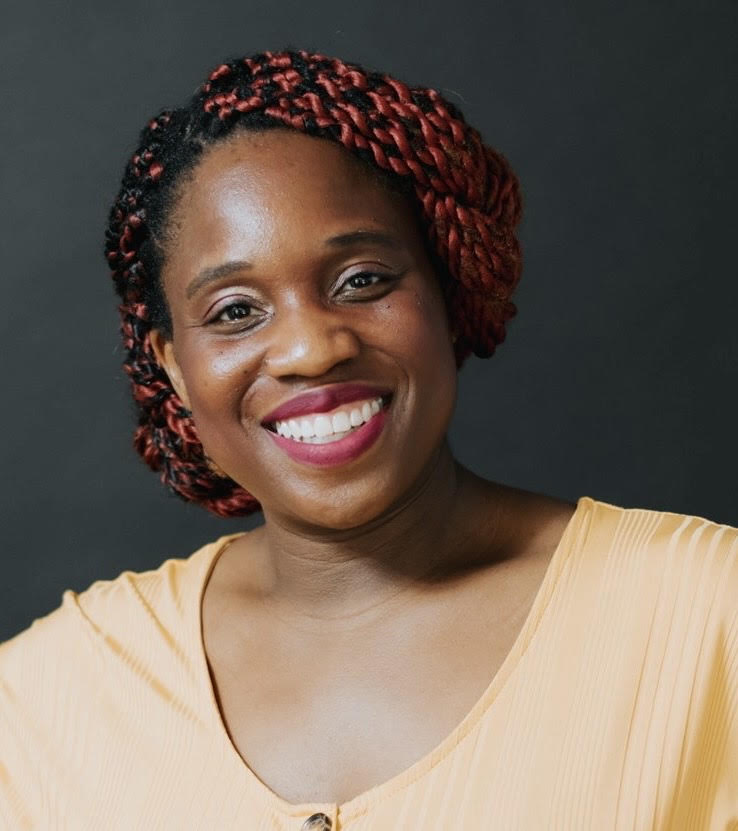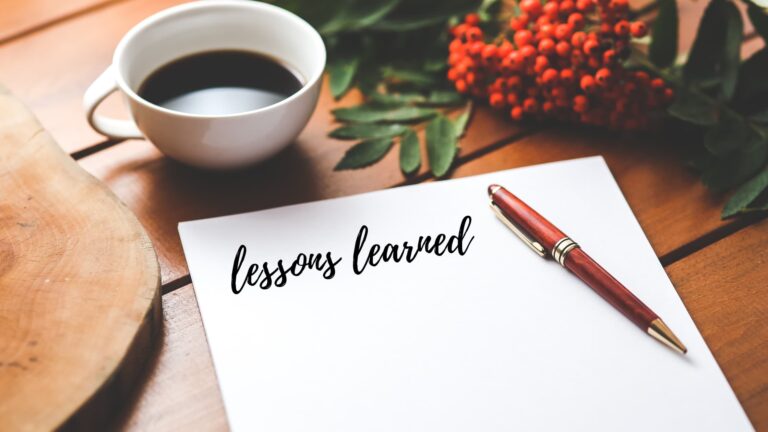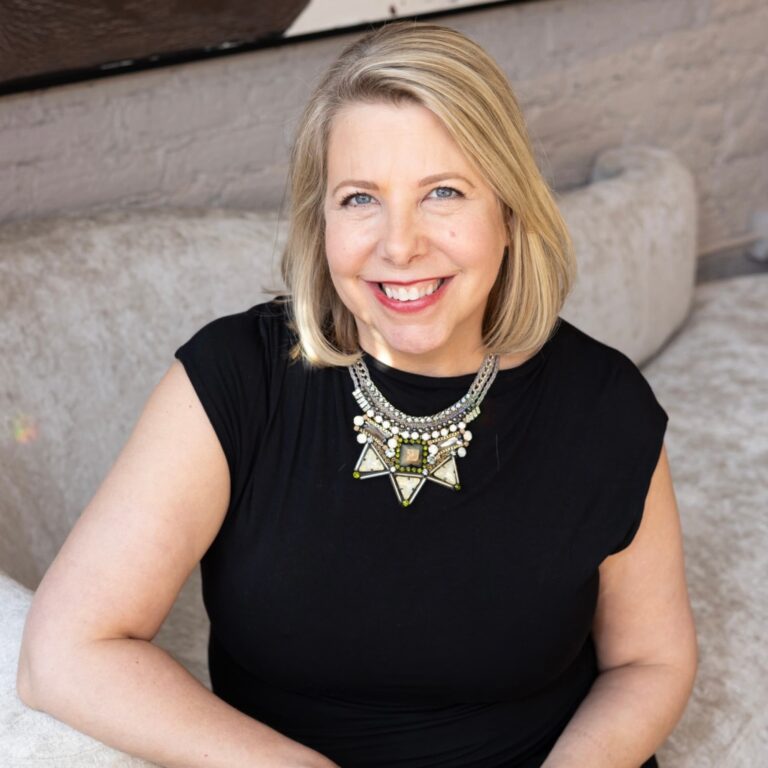Navigating Stupid Remarks While Grieving: Insights from John Polo
We live in a society that doesn’t understand grief and I’m talking all about it with my guest, John Polo.
John is a widower, an international coach, best-selling author and keynote speaker. From grief to dating, self-growth and everything in between, John offers a style that is powerful, authentic and very unique.
John’s the author of 4 books, including co-authoriing “The Stupid Sh*t People Say to Grievers”.
Listen in as John shares his thoughts and some tips on grieving the way you need to grieve, the loss of identity after the death of your partner, getting to know yourself again and making yourself a priority in rebuilding your life.
John’s website: johnpolocoaching.com
Listen to the Full Episode
Links + Resources From This Episode
This post contains affiliate links. Please read our affiliate policy for more information.
- John’s website: johnpolocoaching.com
- John’s book: The Stupid Sh*t People Say to Grievers
Episode Transcript
Melissa: Hi, it’s Melissa Pierce, and thanks for listening to the Widow Squad Podcast.
Today I’m thrilled to be talking with John Polo. John is an author, coach, and speaker. In 2016, John became a widower after his wife Michelle died of cancer. After Michelle’s death, John rebuilt his life. And today, John helps others through his social media, his books, through coaching workshops, speeches, and podcasts.
Welcome to the show, John. I’m really glad you’re here.
John: Yeah, it’s so nice to see you again and connect with you again.
Thanks for having me.
Insights from a Widower’s Journey
Melissa: Well, let’s dive right in. If you wouldn’t mind sharing a little bit about your life after Michelle died, or even just your life with Michelle.
What brought you here to do what you’re doing?
John: Yeah, so I’ll make it short because it’s a long story. We were high school sweethearts. We dated for a year. She ended up breaking my heart. We actually went to different schools, and the breakup was a pretty bad breakup. So when we broke up, we lost all contact for seven years.
Seven years later, I was sitting at my computer answering some emails. In popped an email from Michelle. We talked for an entire year before we saw each other again. When we did, we admitted to each other and ourselves that those feelings had never gone away. So we started building a life together.
Two and a half years after that, she got diagnosed with one of the worst cancers known to man. And she fought it for two and a half years before she passed away in 2016. So it’s been seven years for me.
A month after she passed away, I was going crazy. I didn’t know what to do with myself. I wasn’t a husband anymore in the physical form. I wasn’t a caretaker anymore. I had to give up my stepdaughter and never knew if I would see her ever again. And a friend said, “well, why don’t you start a blog?” Writing seemed to help while she was sick. Maybe it will help me now as well. So I did that. The next day, I Googled “how to start a blog” and I started one with a matching Facebook page just as a way to process my raw grief. And it took off. And today, what it has become is four books and a full time coaching and public speaking career.
Melissa: You mentioned you’re not a husband anymore. There’s a big loss of identity that happens there that I don’t think we really talk about that much. Who am I now? A wife, a husband? We’re not that anymore. So with the blog, was that cathartic and healing?
I don’t want to put words in your mouth, but what did you write about? What types of things?
John: Early on, it was just my raw grief. Like, how I felt that day, or as the months passed, if I had a moment of hope, I would talk about that as well. Then about a year in, I thought, I actually want to write a book. So I started writing longer pieces. I wrote about 13 months, and I wrote my most popular piece ever called, “Sit Down and Shut Up.” I wrote a piece called “The Solitude That Follows” So I started writing longer pieces, and those eventually found their way into my book. But, yeah, early on, it was just the raw grief from a 31-year-old widower. And when we talk about not knowing who we are anymore, I do monthly virtual workshops and sometimes in person. And by far, my most popular one is called “Who Am I Now?”
Because it just resonates. I think with 99% of widowed people, when your person passes, a huge part of us goes with them and we do lose our identity. We know that we have to rebuild our life, but the difficult truth is we also have to rebuild ourselves.
Melissa: I mean, you have those feelings of loneliness and sadness and anger and guilt and all that, so you’re mired in all these feelings. I think the number one thing behind all that is Who Am I Now? It’s like losing an appendage. I’ve had this person in my life. They’re no longer there. Who am I now?
John: In the last seven years, I wrote so many heartfelt things and I think so many beautiful things. But the most popular thing I’ve ever written is called “Sit Down and Shut Up.” I got really angry one day because I kept seeing widowed friends judged not only for their grief, but for wanting to live again eventually, for wanting to get back out there and date. And it was Valentine’s Day, 13 months after Michelle passed. I had a little too much wine and I just kind of let it all out. That piece is in all four of my books because it’s so popular.
Melissa: So your fourth book your latest book,is called The Stupid Sh*t People Say to Grievers. What was the reason for this fourth book?
John: Carolyn was a client and I saw talent in her and asked her why she wasn’t coaching. Eventually she wanted to start coaching. So I helped her kind of launch her coaching career.
We do a podcast together, and one of the episodes was entitled The Stupid Shit People Say to Grievers and we posted on our social media with the question, “has anybody said anything stupid or mean to you?” We got so many comments we couldn’t keep up. Like, we could write four more books, right? And we were kind of blown away, not only by the volume of comments, but by what people were saying, because some of it is so stupid and some of it is so mean. A few months later, we were talking and she said, “I think we really need to write a book about this.” I was resistant at first because I had already written three books and I know how much work it is. But eventually we stopped procrastinating and we did it.
The book also has a lot of other stuff, though. So we have heartfelt comments and personal stories. We have tips not only for the grieving person, but also for the person who wants to support their grieving friend.
Understanding Grief Illiteracy: The Importance of Respecting and Supporting Grievers
Melissa: So why do you think people say things?
I have to think that people aren’t just inherently mean. There’s certainly people in the world like that, but I wonder why. Is it an uncomfortableness with the subject or they’re uncomfortable with you being different?
You’ve interviewed and talked to a lot of folks. Why do you think that is?
John: Well, I think, first off, society as a whole is very grief illiterate. We do not understand grief at all. We don’t understand the magnitude of the loss, the depth of the secondary losses, everything that comes with it. Society does not get it.
I had a lot of losses in my life before my wife. I had cousins and family, friends and aunts, uncles, grandparents. My dad, who was my best friend and my hero, passed away in 2008. I was 24. I thought I knew grief.
Losing my wife brought a different form of grief that I could have never imagined to my heart, to my soul, to my mind. Right? So I think that society as a whole is really grief illiterate. I also think that people don’t know what to do with us or how to talk to us, right? So sometimes stupid things or mean things come out of their mouth. I do think that there are mean people out there, unfortunately, as well. But to me, my whole thing is like I never, ever expected or even wanted anyone to understand my grief. I knew that they couldn’t. What I always expected and wanted was for everyone to respect my grief. And that, to me, is very doable for all humans.
You don’t have to understand what I’m going through to respect my pain and my loss.
Melissa: In all of your books, or maybe the last book that you wrote, are there tips or something in there about how to respect somebody’s grief?
John: Yeah, 100%. Especially in this book, because there’s a little bit of that in my other books, but especially in this book. We give some very simplistic bullet point tips.
As far as how to respect our grief, we tell you again, just respect it. You don’t have to understand it.
One of the tips we give is to open the space for the grieving person. Don’t force it upon them, but ask them. “Hey, if you ever want to share funny or happy or even sad memories of your deceased husband Joey, I’m all ears.” Just opening the space for another human can be so helpful.
We also give tips and stories about how sometimes you don’t need any words at all. There’s a longer page in this book because I create all my books in a very simple to read format for people who have ADD and grief brain like me, but one of the longer pages in this book talks about Memorial Day a couple of years after Michelle passed. I had one of my absolute worst days. I can remember just being in the bathroom for hours that morning, sobbing and just watching the tears fall down my eyes.
And eventually I was able to pull myself together a bit. I drove to my sister’s house where they were going to have a Memorial Day barbecue and I couldn’t go in. I drove to a hotel a few blocks away that was like a shut down, closed down abandoned hotel. I just sat in the parking lot for hours and cried.
Finally, a few hours after that, I pulled myself together again and I went to my sister’s house. As soon as she opened the door, I nodded to her to come into the master bedroom with me. Her master bedroom is right off her front door and I just sat there and sobbed. My sister, who’s never experienced this type of loss and isn’t necessarily the greatest person in the world to deal with this type of loss, she got it right in that moment. She just rubbed my back as I sobbed it out. And that, to me, is a helpful tip. Sometimes you don’t need the perfect words. We just need the presence of a caring human.
Melissa: Yeah. I mean, words fail us, for sure. So probably the best thing that she did for you was just to give you that space and witness what you were moving through and not give you any platitudes like “it’s going to be okay” because she doesn’t know that.
John: She doesn’t know that. Yeah.
Melissa: Oh that’s beautiful. Did you let her know that was really good, do that some more, or what?
John: If she decides to buy my book, she’ll see it.
Melissa: There you go. So, folks reading this book, what do you want them to get out of this or learn from this?
John: I think the number one thing if you’re a grieving person is that you’re not alone.
Whether it comes to people saying stupid things to us or mean things to us, whether it comes to the secondary losses and how we lose people after.
I think that a lot of us walk this widowed journey and we feel all alone, especially if we haven’t connected with other widowed people yet. And part of this book is like, you’re not alone. Society is grief illiterate.
The other part of that is hoping that we can do better in society. It’s not that hard to show support. It’s not that hard to be there and show that you respect someone’s pain and that you’re cheering them on as they try to get back up and rebuild.
It’s not that hard. We can do better. We have to do better.
Melissa: I have to admit, before my husband died, I don’t think I was that great. I don’t think I was the best grief ally. But now I know, now that I’ve been in it and know what was helpful and what was not I can show up for somebody.
I always struggle because even writing a sympathy card, I don’t know what to say. I still don’t know what to say. But I know that I can just acknowledge what they’re moving through and that maybe I can walk alongside them on this journey.
But yeah, you’re so right. One of your taglines, I think it was on your website, it says, “we live in a world that doesn’t understand grief.” We’re uncomfortable with it, nobody wants it, like they’re going to catch it or something.
But we’re all grieving. We’re just probably just not acknowledging it.
John: I had a lot of losses in my life including my dad when I was 24. He was my best friend and my hero. But when I think back at how I would deal with people’s grief and some of the things I said, I’ll lean into that now. And the reason I lean into that now and fess up to those things I said or how I handled it is because look at me now.
I have 5000 coaching sessions under my belt now. I am a public speaker and I have four books about grief. There are some people in society who don’t care how they make you feel. They’re mean people. But for the most part, I think we all want to do better. And again, with a little bit of knowledge, we can do better.
The only thing I’ll say is, I’m with you on the sympathy cards. I have people email me a lot because of what I do and they’ll tell me their story. And I got to tell you, it feels so empty when I respond to them, “I’m so sorry for your loss”. It feels so empty. One of the things I started doing about six months ago when that happens is, I will say, “if you ever want to share a story with me about the person that you lost, I would love to hear it” and I open the door for them to then email me a story.
It doesn’t fix anything, but it feels like I’m giving them my heart more than just the basics. I’m so sorry for your loss.
Melissa: Like, hey, when you’re at a point where you want to talk about this or you want to share a funny story, I’m the person I’m open to this. What was something that really shocked you about some of the responses you got from people? And then something that was really super helpful. This is what you should be saying. If you have any off the top of your head.
John: Yeah, I mean, I have to tell you, there are some basics in this book. We go over all the basic platitudes and we go over the things like, oh, you’re young, you’ll find someone. Again, we go over the basics.
But there’s so much in this book that just will leave your jaw on the floor. Right. I mean, the two that popped into my head, and I’m going to kind of paraphrase because I don’t want to flip through the pages to find them here.
But the two that pop into my head that are just the most dumbfounding are: after a woman lost her husband, her coworker said to her, “don’t worry, your husband’s in heaven. He’s okay. He probably has another girlfriend by now”. Like how? I don’t understand how. Right?
And then the other one is a woman who lost her child, a young child, I believe. And again, I’m sorry if I’m wrong here, but I believe six months old and somebody said to this grieving mother, “it’s probably for the best because you never know, he could have grown up to be a murderer or something”. So we go over some basics.
Yeah, there are other ones in here that are just so ridiculously stupid. Or like, “oh, you’re lucky that he died. I still have to see my ex husband every other weekend.” We’ve heard that one before. The divorce comparison.
One of the reasons we didn’t make this book 4000 pages is because we didn’t want to exhaust everybody with it. And that’s also why we come in there with a lot of helpful tips.
We do a lot of funny stuff in the book so it’s not just flipping through and reading stupid thing after mean thing continuously.
Prioritizing Yourself: Lessons on Empathy and Compassion
Melissa: And there’s kind of benign things where people, I think, are trying to compliment you, but it doesn’t hit. A really good friend, and I think she meant it as, “hey, you’re doing really good.” I overheard her say something to a friend. Something like “Melissa is so strong, she can get through anything.”
I don’t want to be in this position to be strong! And then I felt like I had to present as strong so that people wouldn’t worry about me or whatever. I did myself a really big disservice by doing that because I didn’t really allow myself to feel my feelings.
So she meant it as wow, she can do this, she can move through this. And I thought, I don’t want to move through this. I don’t want to be in this position to do it. And it wasn’t mean. It wasn’t mean.
John: I talk about this in one of the last pages of the book. I’m a huge believer that we have to empower ourselves to grieve the way we need to grieve. I think when we empower ourselves to grieve the way we need to grieve, we’re setting the stage so that when we’re ready to start rebuilding now, we can start rebuilding the way we want to rebuild. And when we’re ready to start living again, we are now empowered to live the way we want to live. Because the people or friend was trying to help, they just didn’t go about it in the best way. More specifically, to the people who judge us for our grief, those are the same people that are going to judge you for how you start rebuilding and how you start living again. So at some point, we have to empower ourselves.
Melissa: How does one empower themselves and rebuild? Because that is daunting. When you were building and planning a future with somebody, that future is gone. And you’re like, now what? Now what do I do? What do I like to do? Do I like to golf? No, I like to golf with him. But I did that for him. How do you get to a point where you feel empowered? And I know that’s a big question, but how do you do that?
John: Yeah, I’ll give you like a 20 second answer here.
So that’s why I think my Who Am I Now? Workshop is my most popular workshop.
Because as we talked about, you’re not only rebuilding your life, you’re rebuilding yourself. Part of the reason why we did this book the way that we did it is because I think that once you have it in your head, clear as day, that society doesn’t understand grief, you automatically become a little bit more empowered. You start considering the source when somebody says something to you. So that is one tiny step of how you can empower yourself more. I have to grieve my way. The rest of the world doesn’t understand grief.
I think when we’re honest with ourselves about the magnitude of the loss and our pain, I think that’s a really healthy thing, because we’re then able to give ourselves the proper amount of credit for getting back up, for continuing to fight, for continuing to put one foot in front of another, even when we don’t know where we want our feet to take us.
I think, first, grieve the way you need to grieve. Because as you said, if you’re not grieving the way you need to grieve because of other people right there, you’re not knowing yourself. And then the other thing I started to do was at some point, I started to zone in on myself. Like I had zoned in on everyone that I had loved my entire life. What did I do for my wife during the two and a half years she was sick? I zoned in on everything. Was she hungry? Was she nauseous? Did I need to leave the room before I ate my burger? When was her medicine due? Did I follow up with the doctor? Did she want something else on the TV? Did she need the garbage can next to her in case she got sick? I zoned in on everything for her at some point. It didn’t happen right away, but at some point I started to do that for myself.
Who was I around when I felt better? Who was I around when I felt worse? What was I doing when I felt better? What was I doing when I felt worse? Where was I at when I felt better? Where was I at when I felt worse? Just like a baby, you bring a new baby home, your newborn baby. What do you do with your newborn baby? You zone in on everything that the baby likes, needs, doesn’t like. I started doing that for myself, and that was the beginning stages of me getting to know myself again.
Melissa: Yes, you prioritize yourself. That’s really powerful what you did for yourself.
John: I always say that. I believe we can all make ourselves a priority in our own life. If I’m at a conference speaking, and there’s a couple of hundred people in the audience, I’m not going to get up there and tell them they have to make themselves the priority because I don’t know who’s in the back of the room. A solo mom now that her husband died and she’s got three small kids, and she’s thinking to herself, John Polo, I can’t make myself the priority when I’ve got three small kids. That’s not my place. Maybe on a one on one coaching call, we dive into it. That’s not my place. But what I can tell her is, you can be one of the priorities. You can be a priority in your own life. I think we all have the space to do that.
Melissa: But you could also ask yourself those questions. What do I need right now? I’m tired, I need a nap, do I need to bathe? Do I need to eat something? Do I need to drink water? I mean, those are things you could just really and I think by doing that and tapping into those answers, you really start to trust yourself.
John: Okay, this friend makes me feel better. This friend makes me feel worse. I like to go and get myself a cup of coffee. That makes me feel good and clears my mind. I don’t like to watch movies anymore because everything sets my grief off. Like, get to know yourself again. And you do that by zoning in on yourself.
Melissa: Looking back, what was the most helpful thing you did?
John: There’s a couple of things. I mean, the writing, just being able to release those thoughts and emotions helped me so much.
Connecting with other widowed people. I started connecting with other widowed people on Facebook and then I met them at grief conferences. Then just zoning in on myself, like, hardcore making myself a priority. I had a moment eight months out. I think we might have talked about this on a podcast we did a long time ago, you and I, where I was on the floor sobbing eight months out. And I thought to myself, in that moment, you have taken care of everyone your entire life. I took care of my mom from the age of twelve to 27, my dad for a year when he had cancer, then Michelle, and my stepdaughter. I said, you have to take care of yourself that same way right now.
And it wasn’t because I had a great moment of feeling worthy at that point. I still didn’t feel worthy. It was an epiphany born out of necessity. I had to do it.
Melissa: Before we go, what would you say to somebody who is at a really low point in their life and they are asking themselves, what is there for me now? What would you say to them?
John: It’s such a great question. Thank you for asking me. So I’d say a couple of things. I did a video a while back entitled Hope Used to Fill Me With Rage. When people would try to talk to me about hope as my wife was dying, I would not only not believe it, it would anger me so bad. It used to fill me with rage. Do not talk to me about hope.
As my world has shattered, as my heart has shattered, as my present and my future have shattered, I think that me being honest about that is one of the most important things I can do. My theory is, no one wants to hear me come on here and talk about how I have four books and I have a coaching career and I found happiness again. No one wants to hear that on the podcast. No one wants to hear that at a conference. I’m speaking about it unless they know where I’m coming from. I wasn’t born on third base, that I didn’t believe in hope, that I didn’t believe I would ever smile again or breathe again, that I didn’t believe I would ever find my laugh again, that I had no hope or plans for the future, that the thought of rebuilding seemed impossible.
I think I’ve met so many widowed people who have got back on their feet and have rebuilt and know they’ll never be the same, but they found happiness again, and joy again in their laughter again. It’s not unique to me. It’s normal to not have that hope and not believe in it and not even want it.
But I think that grief constantly changes and evolves. And I think there will come a day where you want it, and when that day comes, it’s a beautiful moment, even if you don’t know what to do with it. That’s when you start zoning in on yourself, making yourself a priority in your own life.
Melissa: Yeah, maybe it is that day when you’re actually like, I’m still alive. I’m still living and breathing. I want something different. I want to feel better. I don’t know what that is. I just need some help. I need some help figuring that out.
John: I have yet to meet a widowed person who doesn’t feel that way. What do you say to someone who doesn’t have hope, doesn’t see a light at the end of the tunnel? I have yet to meet one widowed person who didn’t feel that way at some point. So those of us that have rebuilt and have found life again and happiness again in a much different form, but we found it again.
I want those who have yet to find it and who don’t believe in it, to look at us as an example that it can happen and it does happen.
And just to keep holding on.
Just keep holding on.
Melissa: Yes, beautiful! Thank you so much for being here and I’m so glad we got to chat again. So folks who are listening to this podcast and they want to work with you or connect with you, how can they do that?
John: Yes. So my website is the easiest place. I have coaching workshops, books, and podcasts. It’s johnpolocoaching.com.
Melissa: All right, I’ll put that in the listener notes, too. And get this book. I’ve read a few excerpts from it and there’s some really helpful things in there for grief allies and folks of us who are grieving.







